What Drugs Should Not Be Taken With CBD?
Estimated reading time: 10 minutes
1. Possible Side Effects of CBD
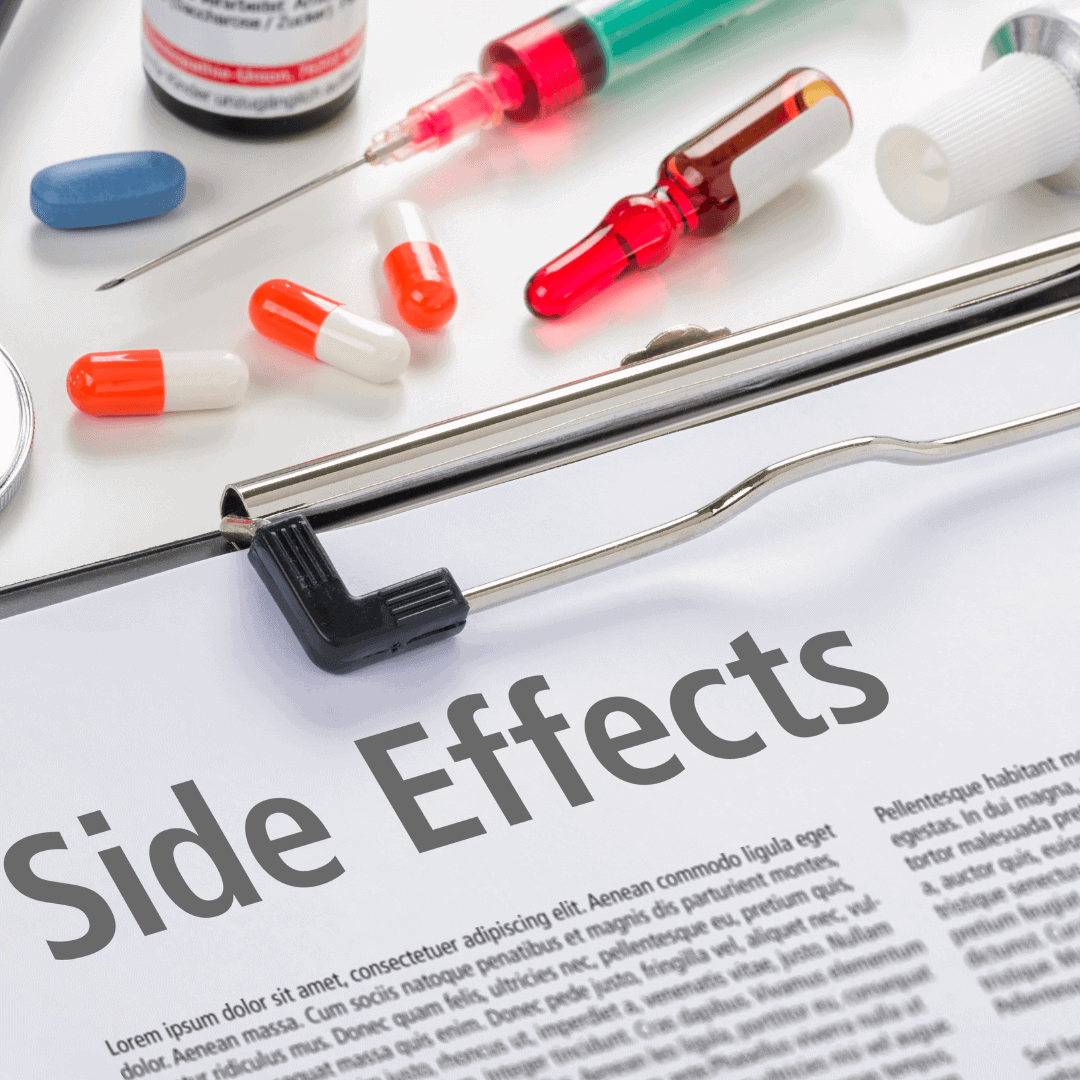
It is extremely rare for people to suffer adverse side effects as a result of taking CBD products. And those who do, generally find that they don't last for more than a few days after first taking CBD. Or, they will find that lowering the dose and tapering up or down, will help them find a balance that is right for them to experience all the benefits, with none of the sides.
However, it would be unfair of us to say that nobody experiences side effects – because some people do! So, it helps to know exactly what to look out for to ensure that you aren't ‘doubling up' on side effects that you might experience when taking it alongside other medications.
Possible side effects from taking CBD oil include:
Dry Mouth
-this is the most commonly reported side effect, but it's also the most easily managed, by simply ensuring that you stay well hydrated and drink water at the same time that you use any CBD product.
A Drop in Blood Pressure/ Light-headedness
-there have been some studies that have observed small drops in blood pressure when particularly high doses of CBD are taken. Most people will notice a drop in blood pressure by feeling a bit lightheaded. So, this is something to look out for, particularly if you are taking high doses of strong CBD oils.
Nausea or Sickness
-combatting nausea is one of the more frequent uses for CBD. However, some people do still report feeling sick when taking high doses of strong CBD oils or pastes. This is more commonly experienced by people who dive straight into high-strength CBD oils, instead of tapering up and finding a good balance.
Upset Stomach and Diarrhoea

– similarly to nausea, this is rare but can be experienced when taking CBD products for the first time, or when using high strengths and dosages. Both are commonly experienced when introducing anything new to your digestive system and subside quickly when your body normalizes the response to the CBD.
Drowsiness OR Restlessness
– CBD's effect varies from one person to the next. For many, it is used frequently as a sleep aid, while others report feeling more alert and focused. This varying effect is often attributed to the way that CBD affects your body's overall stability or homeostasis.
Headaches
– again, this one is exceedingly rare as CBD oil is often taken to reduce the frequency and severity of headaches or migraines. However, a handful of people have reported experiencing headaches after taking higher doses of CBD.
So, if you are already taking medications or supplements that you experience any of these side effects with, it would be wise to consult with your doctor before proceeding with CBD-based products. We would also recommend that anyone using CBD products for the first time start with a low dose and gradually taper upwards. This will help you find a balance where you are getting all the wonderful benefits, without negative side effects.
You can find more information about CBD's possible side effects by clicking here and reading our guide specifically for that.
2. What Drugs NOT to Take with CBD and WHY!

Now that you better understand the possible, but unlikely, side effects of CBD itself, we can talk about the impact that it may have on other drugs, supplements, and medications, and vice-versa.
3. The Grapefruit Test
Has your doctor already told you to avoid grapefruit or grapefruit juice?
If so, then you should almost certainly stay away from oral CBD products too – or at least until you've consulted them. This is because CBD can affect certain medications in the same way that grapefruit does. You might have already seen medications like blood thinners or some anti-biotics that have a grapefruit warning on them. This is because, like CBD, grapefruit inhibits a certain liver enzyme called cytochrome P450 (CYP).
When taken orally, CBD is broken down by these same CYP enzymes and metabolized in your liver too. This is the same way that your body breaks down lots of prescription and over-the-counter medications such as paracetamol and most (CBD included) will usually not harm you when used correctly. However, when it's used at the same time as other drugs that are metabolized by this enzyme things get a bit more complicated.
4. Altered Concentration
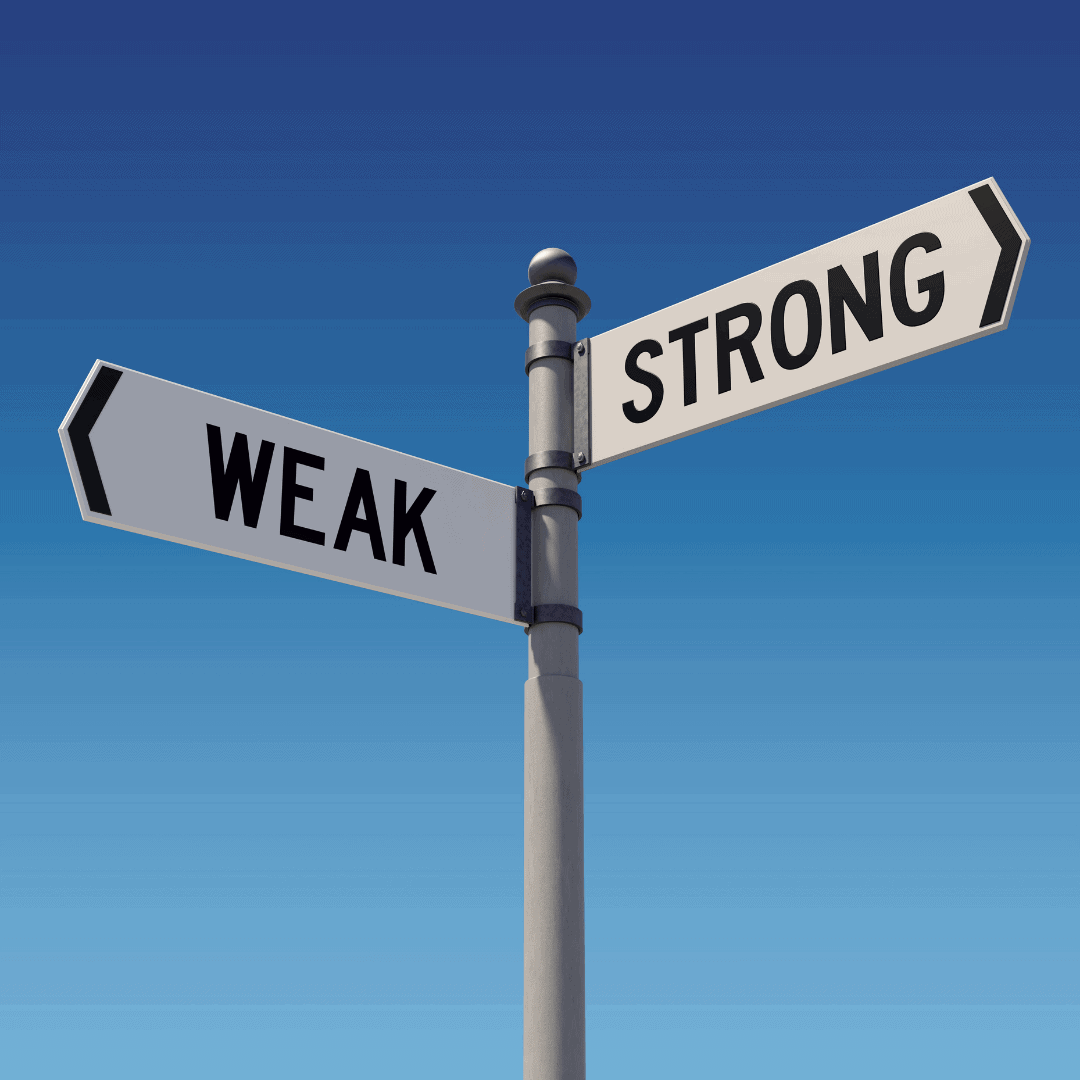
There is an effect called ‘altered concentration' that you should be made aware of. This is when multiple substances are competing with one another for use of the limited CYP enzyme availability within your liver. Put simply, your liver can only process so much and CBD can essentially beat other medicines and drugs for use of these CYP enzymes.
This can lead to much higher levels of other drugs or medications remaining in your body for prolonged periods without being broken down and metabolized. This can cause you to experience additional or worse side effects and (in the worst-case scenario) even overdose if too much of the other drug remains in your system at once.
Because so many drugs are metabolized by your liver, and the CYP enzymes, in particular, the altered concentration effect is possible across a wide spectrum of medications.
Pennsylvania State University, College of Medicine, put together a non-exhaustive list of 57 medications that they found to be potentially dangerous when their concentration was altered by cannabinoids (CBD and THC) under laboratory conditions which can be found here. This is why you must always check with your doctor when taking CBD in tandem with other medications.
As a rule of thumb, just remember to think about The Grapefruit Test.
5. CBD and Liver Toxicity
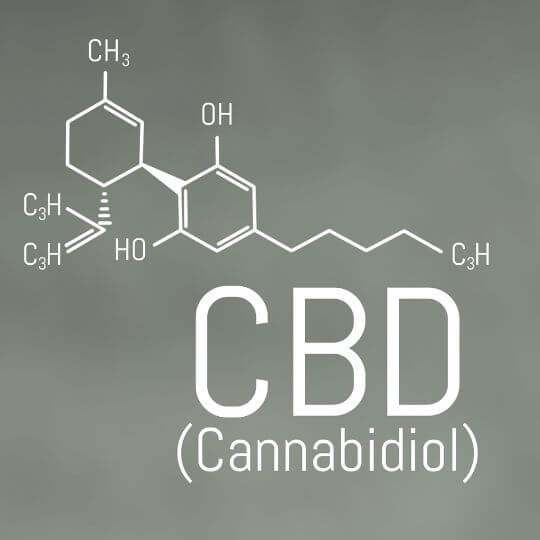
A study conducted into CBD and liver toxicity showed that you had to give mice the equivalent to 200mg of high strength CBD per KG of body weight for a human, to show clear liver toxicity. This is an absurdly high amount that nobody in their right mind would ever take (about 10x what we would consider a high dose), but it was important to show that liver toxicity should also be considered before beginning to use CBD.
The reason being that, as you may well already know, some medications are much more taxing on your liver. So, if you are taking any medication that is known to cause high levels of liver toxicity, then you should consult a doctor before beginning to use any CBD products.
More from our blog
6. A Few Common Drugs That Can Be Affected by CBD
Below we offer you a few of commonly encountered drugs or medication types that could react with CBD.
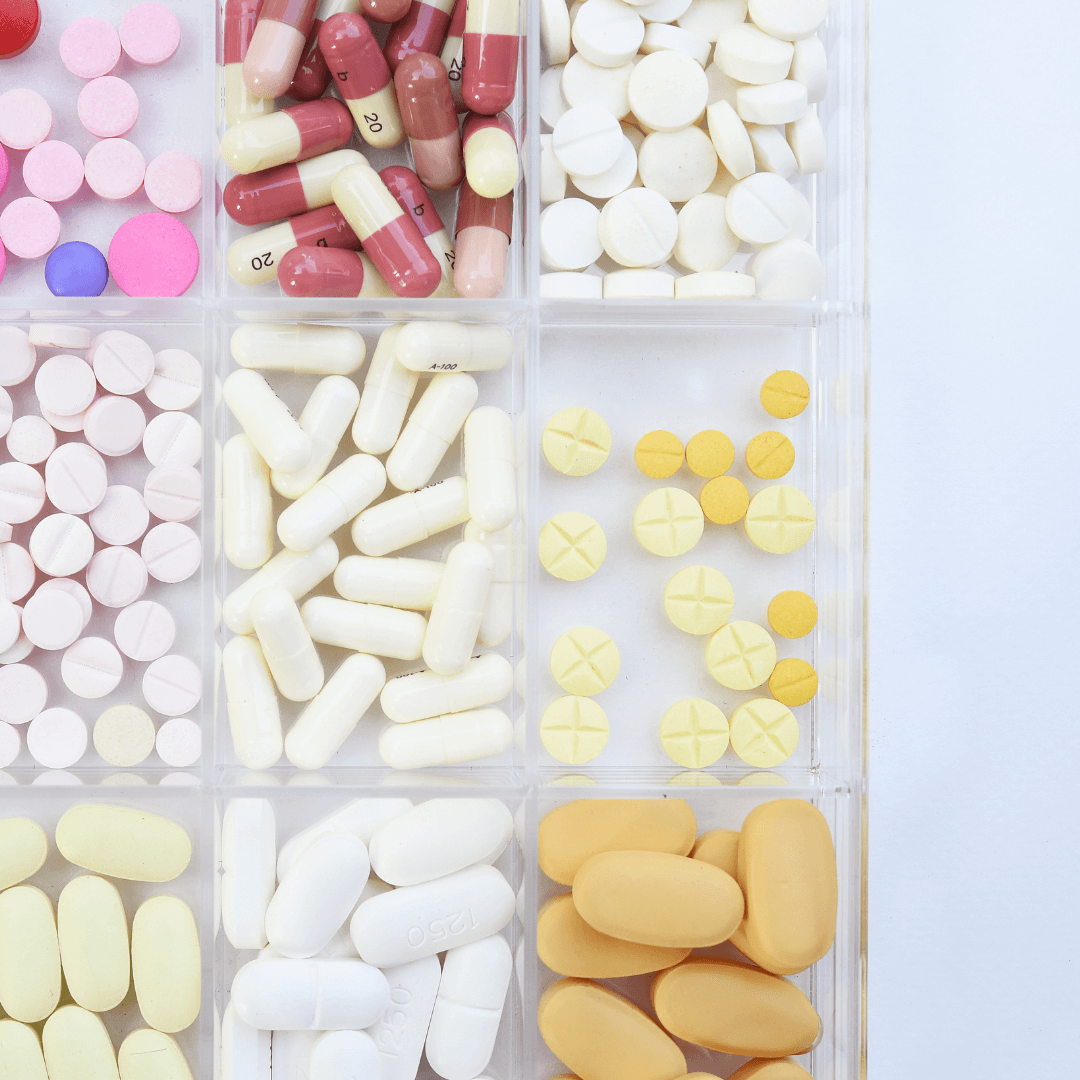
Blood Thinners
CBD has been shown in numerous studies to increase the levels of certain blood thinners, such as warfarin, found in the blood when taken together. This is a result of the ‘altered concentration' effect mentioned above and could lead to additional or worse side effects.
Caffeine
Again, caffeine is metabolized by the same CYP enzymes. This means that if you are particularly prone to the jitters when consuming caffeine, these side effects may be increased as the potency within your blood will be higher and last for longer. Often people will take caffeine to counteract low blood pressure, so you might find you have a hard time finding the right balance if taking CBD.
Sleeping Pills/ Opioids
As mentioned before, CBD taken in high doses can be used to aid sleeping or insomnia. Taking it in conjunction with sleeping pills or opioids might increase the overall felt effect of the drugs. However, more people are starting to turn to CBD as an alternative to prescription sleeping pills, as they can experience the same rewarding benefits with much fewer or no side effects at all.
Thyroid Medication
One of the most used hypo-thyroid medications is levothyroxine and has the same effect as CBD in inhibiting the CYP enzymes in your liver. Again, this could cause even further and more serious interference with existing medications that you might be taking.
How long after CBD can you take Ibuprofen?
7. Speak with Your Doctor!

This list is by no means exhaustive. And if you aren't sure if you can take CBD with your existing medication, always speak to your doctor. We know we probably sound like a broken record by now – we are sorry!
Not only does speaking with your doctor afford you the chance to make sure that you can take CBD safely, but it is also a great way to keep track of and discuss the therapeutic benefits that it can have as well. Many people find that they begin to experience huge benefits from taking CBD and that they can begin to transition away from traditional prescribed medications entirely.
For any further advice or guidance on CBD and CBG products as well as their benefits and uses, please check out our other blogs and guides. Or feel free to contact us with any questions or queries. We are always more than happy to help and thanks for taking the time to read this guide!
More about: How to talk to your doctor about CBD
8. FAQ – What drugs should not be taken with CBD?

CBD can interact with certain medications, including blood thinners, anti-seizure drugs, and certain antidepressants. It's essential to consult with your healthcare provider before combining CBD with any medication to avoid potential adverse effects.
Yes, CBD can potentially interact with blood thinners such as warfarin or aspirin. This interaction may increase the risk of bleeding. It's crucial to consult with your doctor before using CBD if you're taking blood thinners.
CBD may interact with anti-seizure medications like clobazam, increasing the risk of side effects. Patients using both should be monitored closely by their healthcare provider.
Yes, CBD can interact with certain antidepressants, such as selective serotonin reuptake inhibitors (SSRIs), leading to increased levels of serotonin in the body. This interaction may cause serotonin syndrome, so it's vital to discuss CBD use with your doctor if you're taking antidepressants.
Yes, CBD may interact with other medications metabolized by the liver's cytochrome P450 enzyme system, including some statins, antihistamines, and benzodiazepines. It's crucial to consult with your healthcare provider before combining CBD with any medication.
9. The Real CBD Products

I am a certified expert in Medicinal Cannabis. We are all about giving correct and trustworthy information. We know how important it is to learn about CBD and cannabis, which is why we want to be your go-to source for trustworthy information. We help you improve your health by using our knowledge and experience as a starting point.

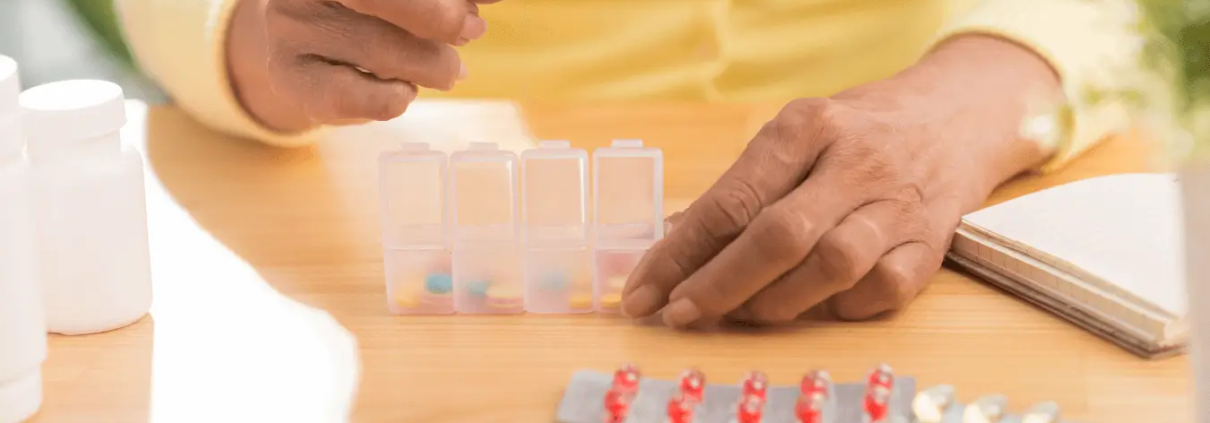

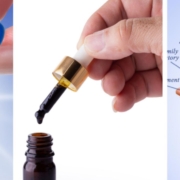




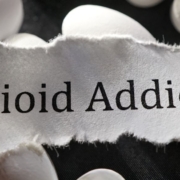
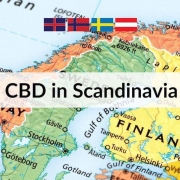




Leave a Reply
Want to join the discussion?Feel free to contribute!